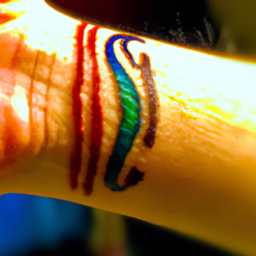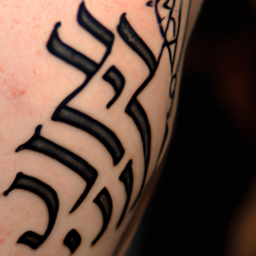“Pre-Tattoo Considerations: Understanding Jewish Traditions”
Introduction to Jewish Traditions and Tattooing
Judaism is a religion steeped in tradition, ritual, and a rich tapestry of laws and customs that have been observed for millennia. Within this framework, the body is often viewed as a vessel for the soul, a sacred entity that is to be respected and preserved in its natural state. This perspective has significant implications for the practice of tattooing, which involves permanently altering the body’s appearance.
The significance of tattoos within Jewish history and beliefs is complex and multifaceted. Historically, tattoos have been associated with pagan practices, and thus, they have been largely frowned upon within the Jewish community. However, the cultural and religious context of Judaism allows for a diverse range of interpretations and attitudes towards body modifications, including tattoos.
In the context of Jewish beliefs, the body is considered to be created in the image of God, and thus, it is to be treated with the utmost respect. This concept, known as “tzelem Elohim,” underpins many of the attitudes towards physical alterations in Jewish thought. The act of tattooing, therefore, is not merely a cosmetic decision but one that carries deeper religious and ethical considerations.
The Torah’s Stance on Body Alterations
The primary source for Jewish law and practice is the Torah, and it is within its verses that the most explicit reference to tattoos can be found. Leviticus 19:28 states, “You shall not make gashes in your flesh for the dead, or incise any marks on yourselves: I am the Lord.” This verse has been the cornerstone of the traditional Jewish stance against tattooing, interpreted as a clear prohibition against permanent body markings.
The implications of this verse have been debated and analyzed by rabbinical authorities throughout the ages. Some interpret the prohibition strictly, viewing any form of tattooing as a violation of Jewish law. Others suggest that the context of the verse, which is adjacent to prohibitions against pagan mourning practices, indicates that the ban specifically targets tattoos related to idolatrous rituals or mourning the dead.
Rabbinical perspectives on body markings extend beyond the literal interpretation of the text. The rabbis delve into the intentions behind the act of tattooing, the potential for tattoos to impede ritual immersion (mikvah), and the broader implications of aligning oneself with practices that are seen as non-Jewish or rebellious in nature. The consensus among Orthodox authorities remains that tattooing is forbidden, while more liberal streams of Judaism may adopt a more lenient approach, emphasizing personal choice and the diversity of modern Jewish expression.
Historical Associations with Tattoos in Judaism
The history of tattoos in Judaism is marked by a traumatic legacy, most notably during the Holocaust. The Nazis forcibly tattooed identification numbers on the arms of prisoners in concentration camps, turning tattoos into symbols of dehumanization and suffering. This dark chapter in Jewish history has left an indelible mark on the collective Jewish consciousness, further complicating the relationship between Jews and tattooing.
For many Holocaust survivors and their descendants, tattoos are a visceral reminder of the atrocities committed against the Jewish people. The presence of a tattoo, even if chosen willingly and for personal reasons, can evoke painful memories and associations. This historical trauma has contributed to the stigma surrounding tattoos in Jewish communities, making the decision to get a tattoo a deeply sensitive issue.
Despite this, perceptions of tattoos in modern Jewish communities are evolving. As the broader society becomes more accepting of tattoos as a form of self-expression, some Jews are choosing to reclaim the practice, using tattoos to honor their heritage, remember lost loved ones, or convey spiritual messages. This shift reflects a broader trend of individualism and diversity within contemporary Judaism, where personal identity and autonomy are increasingly valued.
The changing attitudes towards tattoos are also evident in the stories of younger Jews who seek to integrate their tattoos into their Jewish identity. For some, tattoos serve as a form of personal storytelling, a way to wear their history, beliefs, and values on their skin. This reclamation of agency stands in stark contrast to the forced tattooing of the Holocaust, transforming tattoos from symbols of oppression to emblems of survival and resilience.
In conclusion, the relationship between Jewish traditions and tattooing is a complex and evolving narrative. The Torah’s stance on body alterations, rabbinical perspectives, and the historical associations with tattoos in Judaism all contribute to the ongoing dialogue within the Jewish community. As attitudes continue to shift and new generations seek to balance tradition with personal expression, the conversation around tattoos is likely to remain a dynamic and nuanced one, reflecting the diverse and multifaceted nature of Jewish life in the modern world.
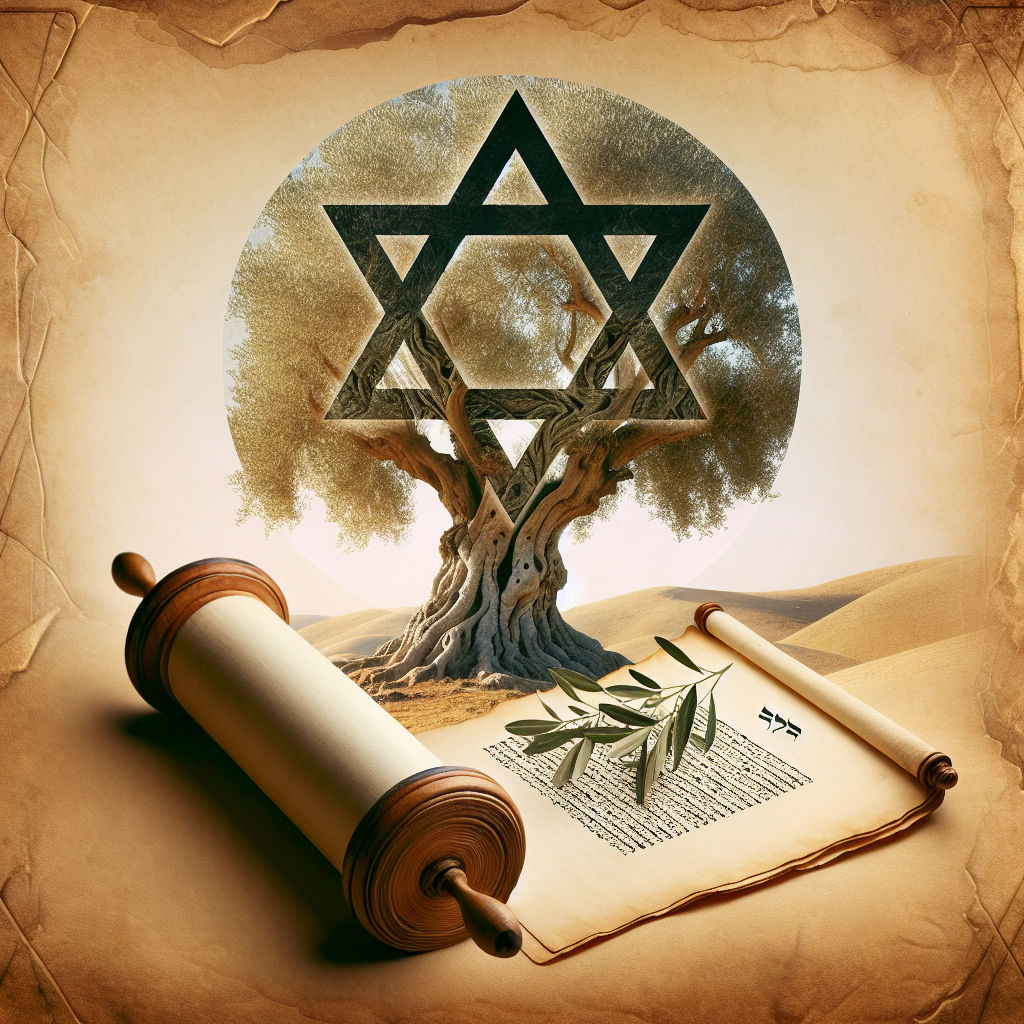
The Question of Jewish Burial with Tattoos
The intersection of Jewish law and contemporary practices often gives rise to misconceptions, particularly concerning the burial of individuals with tattoos. A prevalent myth within and outside the Jewish community is that a person who has tattoos is not eligible for a Jewish burial. This belief, however, does not hold up under scrutiny.
Jewish burial practices are steeped in tradition and respect for the deceased. The principle of “Kavod HaMet,” honoring the dead, is paramount. The myth that tattoos preclude a Jewish burial likely stems from a misunderstanding of Jewish law, specifically the Torah’s prohibition against body markings. Leviticus 19:28 states, “You shall not make gashes in your flesh for the dead, or incise any marks on yourselves: I am the Lord.” Traditionally, this has been interpreted to forbid tattoos.
Despite this prohibition, the halachic (Jewish legal) consensus is that a person with tattoos can be buried in a Jewish cemetery. This is because the Jewish tradition emphasizes the importance of burial and the concept that the deceased should be treated with dignity, regardless of the state of their body. The Shulchan Aruch, a codification of Jewish law, does not mention tattoos in the context of burial, underscoring the fact that having a tattoo is not a barrier to a Jewish burial.
Current practices in Jewish cemeteries vary, with some being more stringent than others. However, it is essential to note that the decision often lies with the cemetery’s governing body or the local rabbinic authority. In cases where there is hesitation, families are encouraged to consult with their rabbi or a knowledgeable authority to navigate the situation with sensitivity and respect for both the deceased and Jewish tradition.
The Role of Halacha (Jewish Law) in Decision-Making
Halacha, the collective body of Jewish religious laws derived from the Written and Oral Torah, plays a critical role in guiding the lives of observant Jews. When it comes to personal choices, such as getting a tattoo, Halacha serves as the framework within which decisions are made. The prohibition against tattoos is one of the many commandments found in the Torah, and for those who adhere strictly to Halacha, this would be a decisive factor against getting a tattoo.
However, the role of Halacha in decision-making is not always straightforward. It involves the interpretation of ancient texts in the context of contemporary life, a task typically undertaken by rabbis and halachic authorities. These interpretations can vary, leading to different conclusions among different communities or denominations within Judaism.
For individuals considering a tattoo, consulting with a rabbi or knowledgeable authority is crucial. This consultation provides an opportunity to discuss the implications of such a decision, not only from a halachic standpoint but also considering the individual’s personal circumstances and their community’s norms.
The importance of consulting with a rabbi cannot be overstated. It ensures that the individual’s decision is informed by a deep understanding of Jewish law and its application. Moreover, it allows for a personal connection to the tradition and a thoughtful consideration of how personal choices align with one’s Jewish identity.
The Impact of Tattoos on Jewish Identity and Acceptance
The question of tattoos within the Jewish community extends beyond the realm of religious law into the complex dynamics of identity and acceptance. For many Jews, tattoos are seen as a form of self-expression that does not diminish their connection to their faith or heritage. However, for others, tattoos represent a departure from traditional Jewish values and can lead to feelings of alienation or judgment.
Navigating Jewish identity with tattoos can be particularly challenging in more traditional circles, where adherence to Halacha is stringent, and community norms may be less accepting of body art. Individuals with tattoos may experience a range of reactions, from curiosity to disapproval, which can impact their sense of belonging within the community.
The challenge of acceptance is not insurmountable, though. As modern Jewish communities become more diverse and inclusive, the presence of tattoos is increasingly seen as a non-issue. This shift reflects a broader trend towards a more nuanced understanding of Jewish identity, one that can encompass a variety of expressions and experiences.
In non-traditional Jewish circles, tattoos may even be embraced as a form of personal or spiritual expression. Some Jews choose to get tattoos with Jewish themes or Hebrew script as a way to visibly affirm their identity. This trend highlights the evolving nature of Jewish self-expression and the ways in which tradition can be reinterpreted to fit contemporary life.
Ultimately, the impact of tattoos on Jewish identity and acceptance is a reflection of the broader conversation about what it means to be Jewish in the modern world. It is a conversation that requires openness, understanding, and a willingness to engage with the diverse ways in which people connect to their Jewish heritage.
In conclusion, the topics of Jewish burial with tattoos, the role of Halacha in decision-making, and the impact of tattoos on Jewish identity and acceptance are interconnected and reflect the dynamic interplay between tradition and personal expression. As the Jewish community continues to evolve, so too will the conversations around these issues, always with the hope of fostering greater understanding and inclusivity.
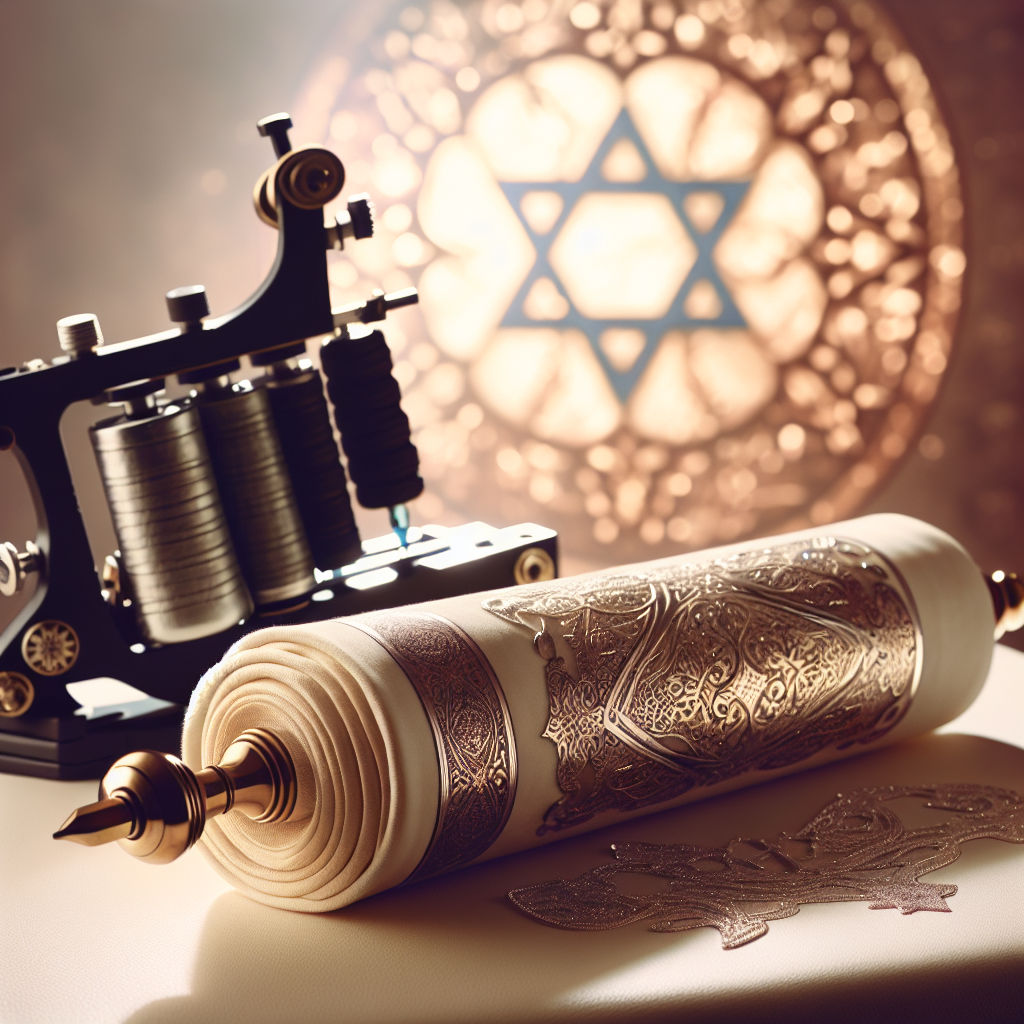
Conversion and Tattoo Considerations
The journey of converting to Judaism is a profound and personal one, often accompanied by a deep examination of beliefs, practices, and lifestyle choices. For those with tattoos, the intersection of their inked past and their Jewish future can present unique considerations. The process of conversion requires an embrace of Jewish laws and customs, and this can lead to introspection about how existing tattoos fit into one’s new religious identity.
In traditional Jewish thought, tattoos are often frowned upon, stemming from interpretations of Leviticus 19:28, which prohibits the marking of one’s body. However, the approach to tattoos for those converting to Judaism is not as clear-cut as one might assume. While the presence of tattoos does not disqualify a person from converting, it does raise discussions about the significance of past choices and their impact on one’s future within the Jewish community.
Rabbis and conversion authorities may address tattoos in different ways. Some may encourage the removal of tattoos, especially if they contain imagery that is antithetical to Jewish values or if they are seen as a representation of a former life that the convert is leaving behind. Others may take a more lenient approach, recognizing that tattoos are a part of a person’s history and that the decision to convert is a testament to their commitment to a Jewish life going forward.
The process of integrating existing tattoos into one’s Jewish life is often a personal one. Converts may choose to reinterpret the meaning of their tattoos through a Jewish lens, finding ways to align their body art with their new faith. For some, tattoos may serve as a reminder of the journey they have undertaken and the transformative power of their conversion experience.
The Relevance of Intention and Mindfulness
In Judaism, the concept of kavanah, or intention, plays a crucial role in religious observance and decision-making. The act of getting a tattoo, for those who choose to do so, is no exception. The significance of kavanah when choosing to get a tattoo cannot be overstated, as it reflects the thoughtfulness and respect one has for their body and their faith.
Intentionality is key when considering a tattoo in a Jewish context. Those who decide to get inked often do so with a deep sense of purpose, whether it’s to honor a loved one, commemorate a significant event, or express a facet of their identity. In the Jewish tradition, the motivations behind actions are as important as the actions themselves. Therefore, a tattoo chosen with careful consideration and a meaningful purpose may be viewed differently than one acquired impulsively or without regard for Jewish values.
Mindfulness about the implications of getting a tattoo is also essential. This includes understanding how a tattoo may be perceived within various Jewish communities and considering the potential impact on one’s ability to participate fully in religious life. For instance, some may question whether a tattoo might affect eligibility for certain rituals or community roles. While there is no monolithic Jewish response to tattoos, the importance of thoughtful consideration and dialogue with knowledgeable authorities cannot be understated.
Alternative Ways to Express Jewish Identity
For those seeking to express their Jewish identity without the permanence of tattoos, there are numerous alternative avenues to explore. Non-permanent methods of self-expression allow individuals to celebrate their faith and heritage while remaining in alignment with traditional Jewish teachings.
One popular option is the use of jewelry, which can be both a personal adornment and a symbol of faith. Items such as Star of David necklaces, Chai pendants, or bracelets inscribed with Hebrew prayers offer a way to carry one’s Jewish identity visibly and proudly. Similarly, clothing items like kippot, tzitzit, or garments with Jewish symbols serve as expressions of faith and can be powerful reminders of one’s commitment to Jewish values.
The role of art in Jewish life is another avenue for self-expression. Creating or purchasing artwork that reflects Jewish themes, history, or scripture can be a meaningful way to connect with one’s identity. This can include paintings, sculptures, or even calligraphy of Hebrew texts. Such art can adorn the home or office, providing a constant source of inspiration and reflection.
In conclusion, the journey of integrating tattoos into Jewish life, whether as a convert or someone born into the faith, is complex and multifaceted. It requires a balance of honoring one’s past, embracing the present, and looking towards the future with intention and mindfulness. As the Jewish community continues to evolve, so too does the conversation around tattoos, identity, and expression. By fostering dialogue and understanding, individuals can navigate these personal choices while respecting the rich tapestry of Jewish tradition.
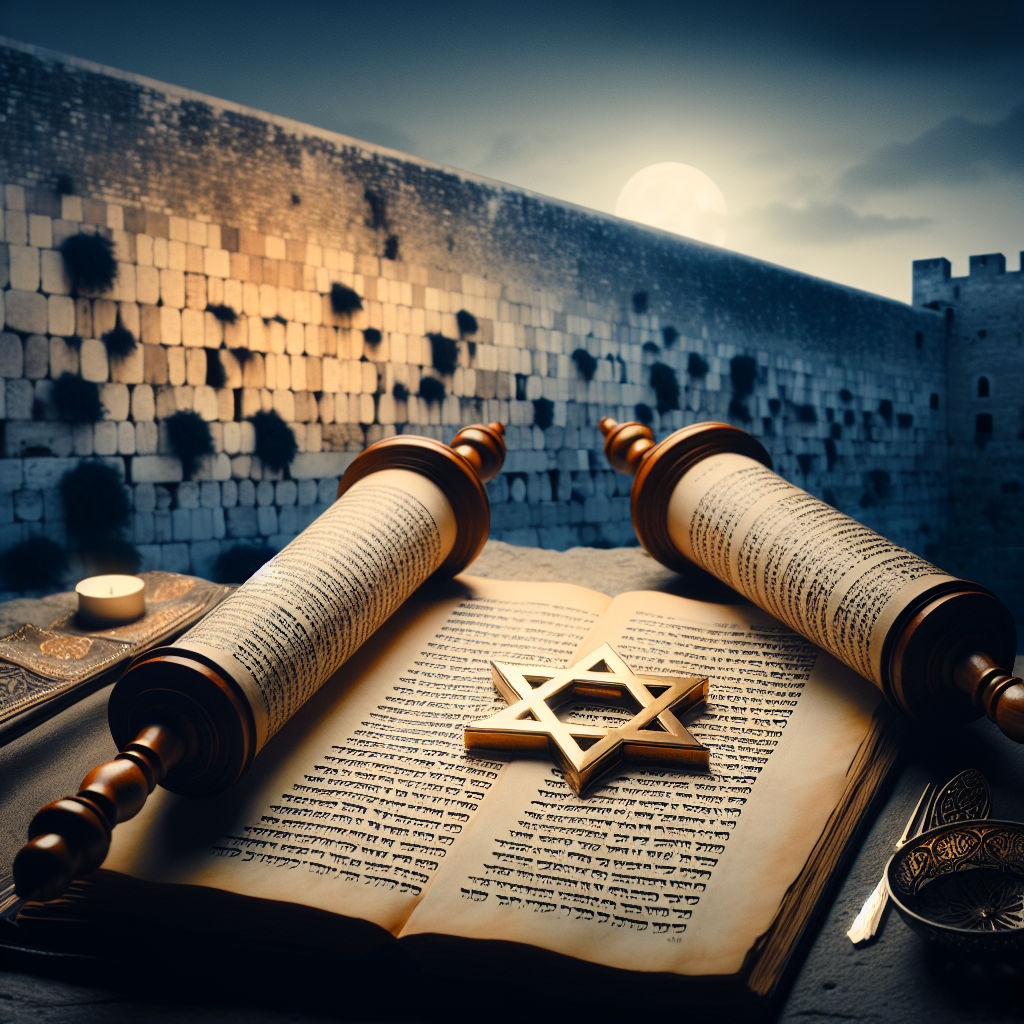
Balancing Tradition with Personal Expression in Jewish Culture
In the tapestry of Jewish life, tradition and personal expression are threads that are often interwoven with complexity and nuance. The Jewish community, with its rich heritage and diverse practices, has long grappled with the challenge of maintaining its historical and religious identity while allowing for individuality and change. This tension is particularly evident in the discourse surrounding tattoos, a form of personal expression that has been traditionally frowned upon within Judaism.
The need for informed decision-making when it comes to tattoos cannot be overstated. For many Jews, the decision to get a tattoo is not taken lightly, as it involves navigating the intricate landscape of Jewish law, cultural norms, and personal beliefs. The Torah, specifically Leviticus 19:28, is often cited as the primary source for the prohibition against tattoos, stating, “You shall not make gashes in your flesh for the dead, or incise any marks on yourselves.” This directive has been interpreted by rabbinical authorities to encompass a ban on tattoos, and as such, has influenced Jewish attitudes towards body art for centuries.
However, the modern era has seen a shift in perspectives, with some segments of the Jewish community adopting a more lenient view on tattoos. This change is reflective of a broader trend towards individualism and the redefinition of Jewish identity in contemporary society. As Jews seek to express themselves in ways that resonate with their personal experiences and values, tattoos have emerged as a medium for storytelling, memorializing significant events, and asserting one’s identity.
The challenge of acceptance within traditional and non-traditional Jewish circles remains a hurdle for those with tattoos. In more orthodox communities, tattoos may still be seen as a transgression of Jewish law and a deviation from communal norms. This can lead to feelings of exclusion or judgment for tattooed individuals. Conversely, in more progressive circles, tattoos may be viewed as a legitimate form of self-expression that does not diminish one’s Jewishness.
The conversation around tattoos in Judaism is not merely about aesthetics or rebellion; it is deeply intertwined with the concept of Jewish identity itself. For some, tattoos are a way to reclaim and affirm their Jewishness, especially in the face of historical traumas such as the Holocaust, where tattoos were used as a means of dehumanization. For others, tattoos may represent a spiritual journey or a connection to Jewish heritage that transcends the written law.
Encouraging dialogue and understanding within the Jewish community regarding tattoos is essential. Open discussions can help bridge the gap between tradition and personal expression, allowing for a more inclusive environment where diverse practices are acknowledged and respected. It is through these conversations that the community can explore the underlying motivations for tattoos and address the concerns of those who may feel alienated by their choices.
In conclusion, the Jewish approach to tattoos is emblematic of a broader struggle to balance tradition with personal expression. As the community continues to evolve, it is imperative that individuals make informed decisions that honor both their personal journeys and the collective heritage of the Jewish people. By fostering a climate of understanding and acceptance, the Jewish community can navigate these complexities with grace and unity, ensuring that the rich tapestry of Jewish life continues to flourish for generations to come.
